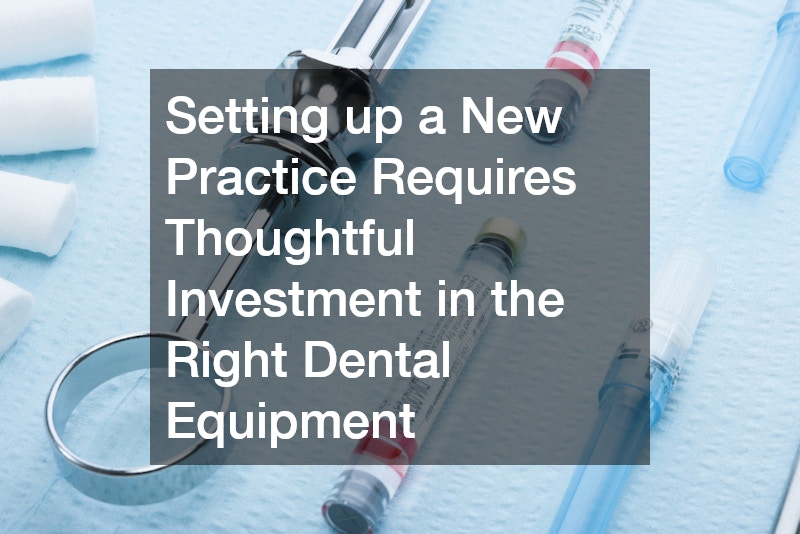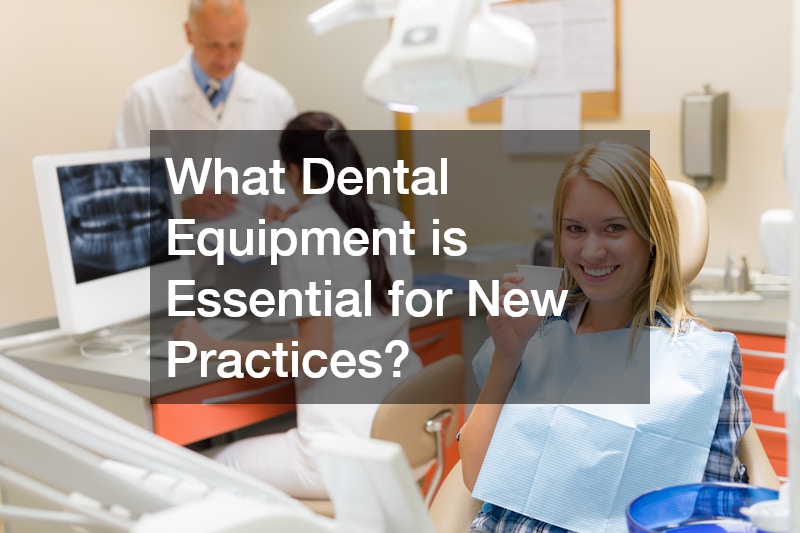
Starting a new dental practice is an exciting venture that comes with a range of important decisions, none more critical than choosing the right dental equipment. The tools and technology you invest in will not only impact your ability to deliver high-quality care but also affect workflow, patient experience, and long-term success. While it’s tempting to focus on aesthetics or the latest gadgets, new practices must begin with a solid foundation of reliable, essential equipment.
From diagnostic tools to sterilization systems, here’s a breakdown of the most important dental equipment every new practice should have from day one.
1. Dental Chairs and Delivery Systems
The dental chair is the centerpiece of any operatory. It must be comfortable for patients while providing the flexibility and positioning options dentists need to work efficiently.
When selecting a chair, consider features like adjustable headrests, ergonomic support, foot controls, and integrated delivery systems.
The delivery system typically includes essential handpieces, suction devices, air/water syringes, and instrument trays. Choosing a unit with a reliable control system helps streamline treatments and supports smooth transitions between procedures.
2. Diagnostic Imaging Tools
Accurate diagnosis is critical in dentistry, and digital imaging systems are now the gold standard. At a minimum, a new practice should invest in:
-
Intraoral X-ray sensors for capturing detailed images of individual teeth.
-
Panoramic X-ray machines for full-mouth views, especially useful for evaluating wisdom teeth, jaw alignment, or growth patterns.
-
Intraoral cameras that allow patients to see what the dentist sees, increasing transparency and engagement during consultations.
Digital systems not only reduce radiation exposure but also speed up image processing and simplify patient recordkeeping.
3. Sterilization and Infection Control Equipment
Ensuring a sterile environment is a non-negotiable part of running a dental practice. Every practice needs a dedicated sterilization area equipped with:
-
Autoclaves (steam sterilizers) for disinfecting instruments.
-
Ultrasonic cleaners to remove debris from tools before autoclaving.
-
Sealing machines and sterilization pouches for organizing tools after disinfection.
Additionally, you’ll need ample personal protective equipment (PPE), disinfectant sprays, and hands-free soap dispensers to maintain compliance with infection control protocols.
4. Dental Handpieces
Handpieces are among the most frequently used tools in any dental practice. There are two main types:
-
High-speed handpieces, used for cutting tooth structure, prepping cavities, and removing old fillings.
-
Low-speed handpieces, ideal for polishing, finishing, and decay removal.
It’s wise to invest in a few of each type to accommodate multiple operatories and reduce downtime between sterilization cycles. Look for handpieces that are lightweight, easy to maintain, and compatible with your delivery system.
5. Lighting and Magnification
Proper visibility is essential for precision. A combination of overhead operatory lights and personal magnification aids, such as dental loupes or headlamps, enhances accuracy during exams and procedures. Adjustable LED operatory lights with shadow control and variable intensity are especially helpful in improving workflow and reducing eye strain.
6. Suction and Air Systems
A quality vacuum suction system is necessary to remove saliva, blood, and debris during procedures. You’ll also need a compressed air system to power handpieces, air/water syringes, and some lab tools. These systems must be reliable and quiet, as they run continuously during clinical hours and directly affect the treatment environment.
7. Laboratory Equipment
Even small practices will need basic dental lab equipment for creating temporary crowns, trimming appliances, or performing minor adjustments. Essentials include:
-
Model trimmers
-
Vacuum mixers
-
Lathe machines
-
Light-curing units
While not all lab work is handled in-house, having core lab capabilities can speed up certain procedures and reduce patient wait times.
8. Computer Systems and Practice Management Software
Though not considered traditional dental equipment, technology infrastructure is essential to modern practice operations. Computers and software support:
-
Appointment scheduling
-
Digital imaging integration
-
Patient records and billing
-
Insurance processing
Make sure your operatory computers are compatible with imaging devices and that your software supports cloud backups and HIPAA compliance.
Final Thoughts
Setting up a new practice requires thoughtful investment in the right dental equipment to balance functionality, safety, and patient comfort. While it may be tempting to cut corners or delay purchases, starting with high-quality core equipment ensures that your team can deliver efficient, effective care from the start. As your practice grows, you can expand your technology offerings, but the essentials outlined above will serve as the foundation for long-term success.


